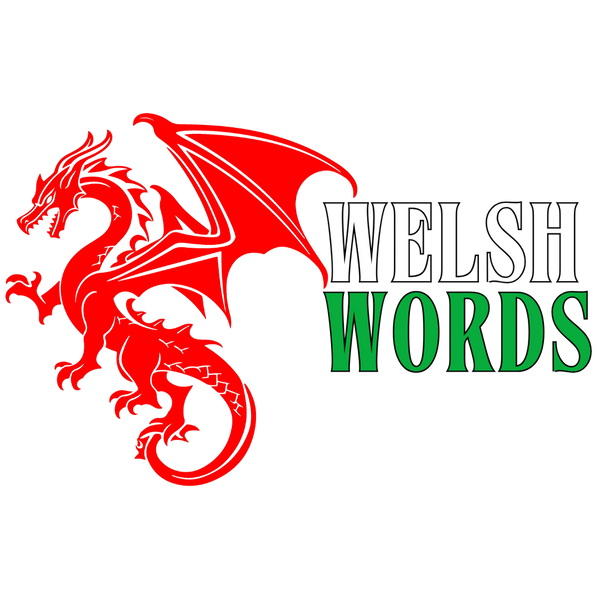
BILINGUAL Bosses Have the Business Advantage!
The Welsh language has become a valuable strategic tool for businesses in Wales. By adopting bilingualism, companies not only respect local culture, but also create a better brand and reach out to new customers. The strategy benefits that this approach provides are higher customer retention and brand trust.

The Welsh Language Commissioner and the Welsh Government support businesses in their bilingual work and offer the essential tools for effective integration. In this blog, we’ll discuss the benefits of benefits of bilingual business practices and some companies that have used Welsh to brand and promote themselves.
What are the benefits of bilingualism in business?
There are a variety of benefits to doing business in Welsh that go well beyond the legal requirements. Bilingualism makes you more connected to the local area, as many Welsh speakers value brands that pay attention to their culture and language.
By offering Welsh and English services, brands can establish a more inclusive environment conducive to customer retention and loyalty. This commitment to local identity can significantly enhance brand affinity among consumers who prefer to engage with businesses that reflect their values.
 McDonald's introduced a Welsh language option to their self-service kiosks in 2015.
McDonald's introduced a Welsh language option to their self-service kiosks in 2015.Beyond loyalty, bilingualism allows businesses to increase the reach of their customers. For businesses who speak Welsh and English, it allows them to reach more people, whether they’re locals, tourists or overseas consumers seeking out Welsh products. Bilingual signs and advertising improve visibility and access, opening up new revenue streams and expansion for businesses.
In addition, using Welsh in branding builds a company’s reputation for authenticity. Locally rooted brands can stand out in the competitive landscape and appeal to consumers who value culturally sensitive brands. Thanks to the support of the Welsh Language Commissioner and the Welsh Government, bilingual integration has access to tools and guidance. These practices help companies not only boost cultural pride, but also boost customer loyalty and improve brand recognition.

The Welsh Commissioner’s guidelines emphasize the importance of identifying best practices in bilingual design to ensure effective communication and inclusivity. For instance, you should be very careful about being as clear and understandable as possible in both languages.
It’s about selecting fonts, colours, and layouts that make things easy to follow, regardless of the language. Designers should also pay attention to the cultural context of text and imagery and make sure Welsh and English versions will resonate with the target audience. By prioritizing legibility and cultural authenticity, agencies can design to effectively communicate their message and revel in the multilingual experience.
The second important point emphasized in the guidelines is consistency across bilingual documents. That means keeping the Welsh and English versions similar in terminology, tone and branding. By creating a style guide that outlines the best usage of language, designs and formatting, businesses can make sure that bilingual messaging is professional and consistent. Such consistency not only lends credibility to the brand, but it also allows Welsh speakers to trust and recognise each other, as if they were valued and welcome.
The second important point emphasized in the guidelines is consistency across bilingual documents. That means keeping the Welsh and English versions similar in terminology, tone and branding. By creating a style guide that outlines the best usage of language, designs and formatting, businesses can make sure that bilingual messaging is professional and consistent. Such consistency not only lends credibility to the brand, but it also allows Welsh speakers to trust and recognise each other, as if they were valued and welcome.

Bilingualism is a competitive advantage that builds relationships with your customers and your community. Using Welsh Government policies and support, businesses can effectively incorporate Welsh and English in their business practices.
Welsh businesses that utilise bilingualism
Brecon Carreg
Brecon Carreg, one of Wales’ most recognisable water brands, uses dual-language packs to mark its history. Sourced from the Brecon Beacons, the water’s label features Welsh phrases such as "Dŵr Mwyn Cymreig" (Welsh Mineral Water). This appeals to Welsh speakers and creates a sense of affinity for those who care about local, authentic brands.
Brecon Carreg’s use of Welsh on water bottles reflects their culture and heritage and helps them establish a clear regional identity. Brecon Carreg’s campaigns often feature Welsh slogans, like "Dŵr yn dod o’r mynyddoedd" (meaning "Water from the mountains"), informing us about the source of the product and the Welsh culture.
Brecon Carreg’s use of Welsh on water bottles reflects their culture and heritage and helps them establish a clear regional identity. Brecon Carreg’s campaigns often feature Welsh slogans, like "Dŵr yn dod o’r mynyddoedd" (meaning "Water from the mountains"), informing us about the source of the product and the Welsh culture.

Lidl
Lidl has also used Welsh bilingualism in its advertising campaigns (including the "Lidl a’r Gymraeg" campaign) which emphasizes Welsh language promotion in its stores and adverts. One example, is the bilingual signage on its Welsh stores, where product information, promotions and store directions are presented in Welsh and English. Customers can also hear Welsh messages on the self-checkout and tannoy screens to increase the bilingual shopping experience.
Lidl has issued bilingual leaflets and posters advertising local Welsh products, including traditional foodstuffs, during national holidays such as St David’s Day. The chain also has worked with Welsh charities and local festivals to demonstrate its belief in the Welsh language, further engendering itself into local culture and increasing its perceived presence among Welsh-speaking customers.

Tan y Castell
Tan y Castell, a bakery known for its traditional Welsh cakes, incorporates Welsh into its product packaging and marketing. Bilingual labels help the company appeal to local and international customers, emphasizing its roots in Welsh cuisine.
Tan y Castell’s Welsh and English labels celebrate its heritage, attracting residents and visitors alike. Tan y Castell have added Welsh bilingualism to their marketing by using the Welsh language in their branding, packaging and marketing materials. Their labels, which are bilingual with names and information in Welsh and English, appeal to a larger population and celebrate local traditions. Tan y Castell also advertises in Welsh, meaning that their content appeals to Welsh speakers.
Tan y Castell’s Welsh and English labels celebrate its heritage, attracting residents and visitors alike. Tan y Castell have added Welsh bilingualism to their marketing by using the Welsh language in their branding, packaging and marketing materials. Their labels, which are bilingual with names and information in Welsh and English, appeal to a larger population and celebrate local traditions. Tan y Castell also advertises in Welsh, meaning that their content appeals to Welsh speakers.

Welsh Brew Tea
Welsh Brew Tea stands out by emphasizing its Welsh identity through its name and bilingual packaging, showcasing the rich culture of Wales. The family-owned company does not just use terms such as "Coffi Cymreig" (Welsh Coffee) in its packaging, but also includes bilingual labels on every product that bares both Welsh and English labels for tea varieties. This is a move that makes it more valuable for Welsh-speaking consumers, but not necessarily for non-Welsh speakers so that it will be broadly accessible.
Welsh Brew Tea also hosts local festivals and events, including the National Eisteddfod, where they provide tastings and market their products in both English and Welsh. Their marketing campaigns often include Welsh sayings or proverbs, further connecting their products to local heritage. For example, their promotional materials might feature the slogan “Te sy’n dod o Gymru” (Tea that comes from Wales), reinforcing their commitment to Welsh identity. It also interacts with customers via social media, both Welsh and English, sharing content about their tea combinations and Welsh culture, furthering their brand relationships with people.
Welsh Brew Tea also hosts local festivals and events, including the National Eisteddfod, where they provide tastings and market their products in both English and Welsh. Their marketing campaigns often include Welsh sayings or proverbs, further connecting their products to local heritage. For example, their promotional materials might feature the slogan “Te sy’n dod o Gymru” (Tea that comes from Wales), reinforcing their commitment to Welsh identity. It also interacts with customers via social media, both Welsh and English, sharing content about their tea combinations and Welsh culture, furthering their brand relationships with people.

These brands show that incorporating Welsh into branding and advertising is worthwhile. By fostering a bilingual culture, companies can get closer to their audience, retain customers, and maintain their status as ‘Proudly Welsh’ brands. Such a strategy not only displays cultural pride but also gives you a competitive advantage.
Learn more about workplace Welsh with these 12 easy phrases for teachers!

